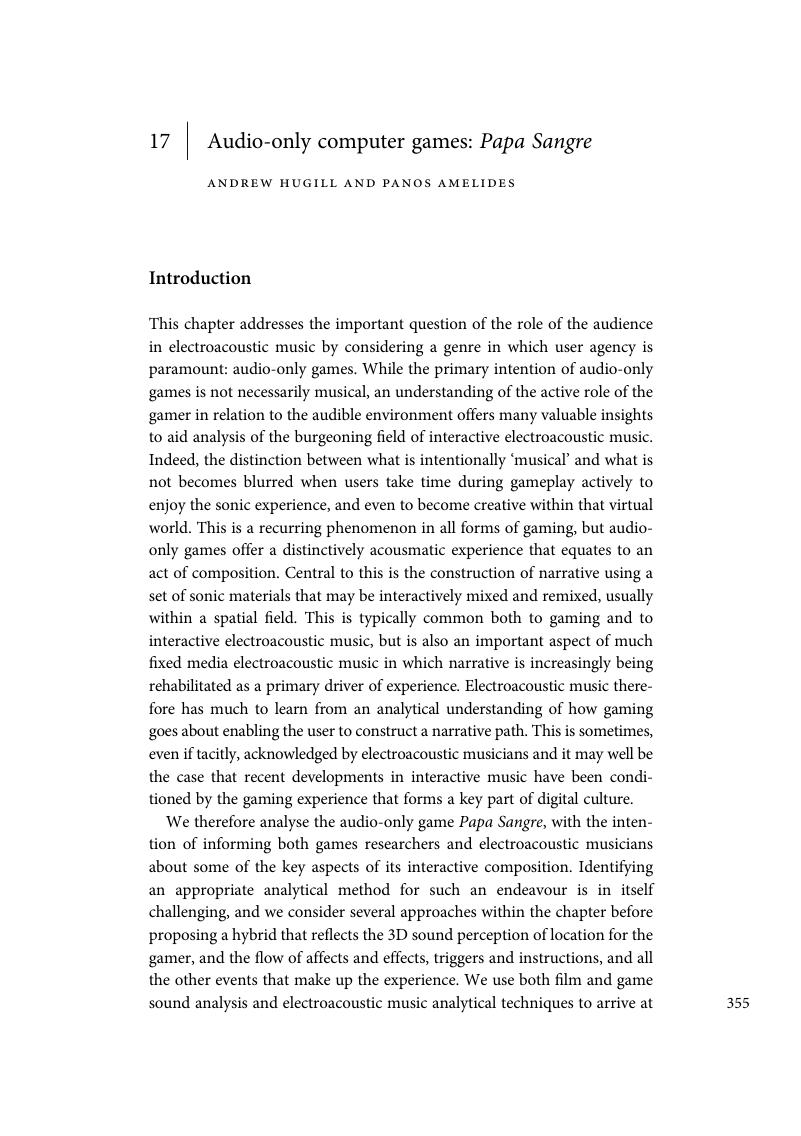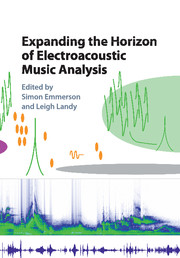Book contents
- Expanding the Horizon of Electroacoustic Music Analysis
- Expanding the Horizon of Electroacoustic Music Analysis
- Copyright page
- Contents
- Figures
- Contributors
- Part I Setting the scene
- Part II Ideas and challenges
- Part III Harnessing new forces
- Part IV Analyses of key works
- 9 Trevor Wishart’sChildren’s Stories IIfromEncounters in the Republic of Heaven: an analysis for children of a sample-based composition
- 10 Analysis ofFoilby Autechre (fromAmber(1994))
- 11 Temporal recurrence in Andrew Lewis’sPenmon Point
- 12 Michel Waisvisz:No Backup / Hyper Instruments
- 13 Analysing Sound Art: Douglas Henderson’sFadensonnen(2009)
- 14 Analysing the identifiable: cultural borrowing in Diana Salazar’sLa voz del fuelle
- 15 Kireek2011 Championship routine analysis
- 16 The analysis of live and interactive electroacoustic music: Hans Tutschku –Zellen-Linien(2007)
- 17 Audio-only computer games:Papa Sangre
- 18 Some questions around listening:Vancouver Soundscape Revisitedby Claude Schryer
- Index
- References
17 - Audio-only computer games:Papa Sangre
from Part IV - Analyses of key works
Published online by Cambridge University Press: 05 April 2016
- Expanding the Horizon of Electroacoustic Music Analysis
- Expanding the Horizon of Electroacoustic Music Analysis
- Copyright page
- Contents
- Figures
- Contributors
- Part I Setting the scene
- Part II Ideas and challenges
- Part III Harnessing new forces
- Part IV Analyses of key works
- 9 Trevor Wishart’sChildren’s Stories IIfromEncounters in the Republic of Heaven: an analysis for children of a sample-based composition
- 10 Analysis ofFoilby Autechre (fromAmber(1994))
- 11 Temporal recurrence in Andrew Lewis’sPenmon Point
- 12 Michel Waisvisz:No Backup / Hyper Instruments
- 13 Analysing Sound Art: Douglas Henderson’sFadensonnen(2009)
- 14 Analysing the identifiable: cultural borrowing in Diana Salazar’sLa voz del fuelle
- 15 Kireek2011 Championship routine analysis
- 16 The analysis of live and interactive electroacoustic music: Hans Tutschku –Zellen-Linien(2007)
- 17 Audio-only computer games:Papa Sangre
- 18 Some questions around listening:Vancouver Soundscape Revisitedby Claude Schryer
- Index
- References
Summary

- Type
- Chapter
- Information
- Expanding the Horizon of Electroacoustic Music Analysis , pp. 355 - 375Publisher: Cambridge University PressPrint publication year: 2016
References
- 3
- Cited by



